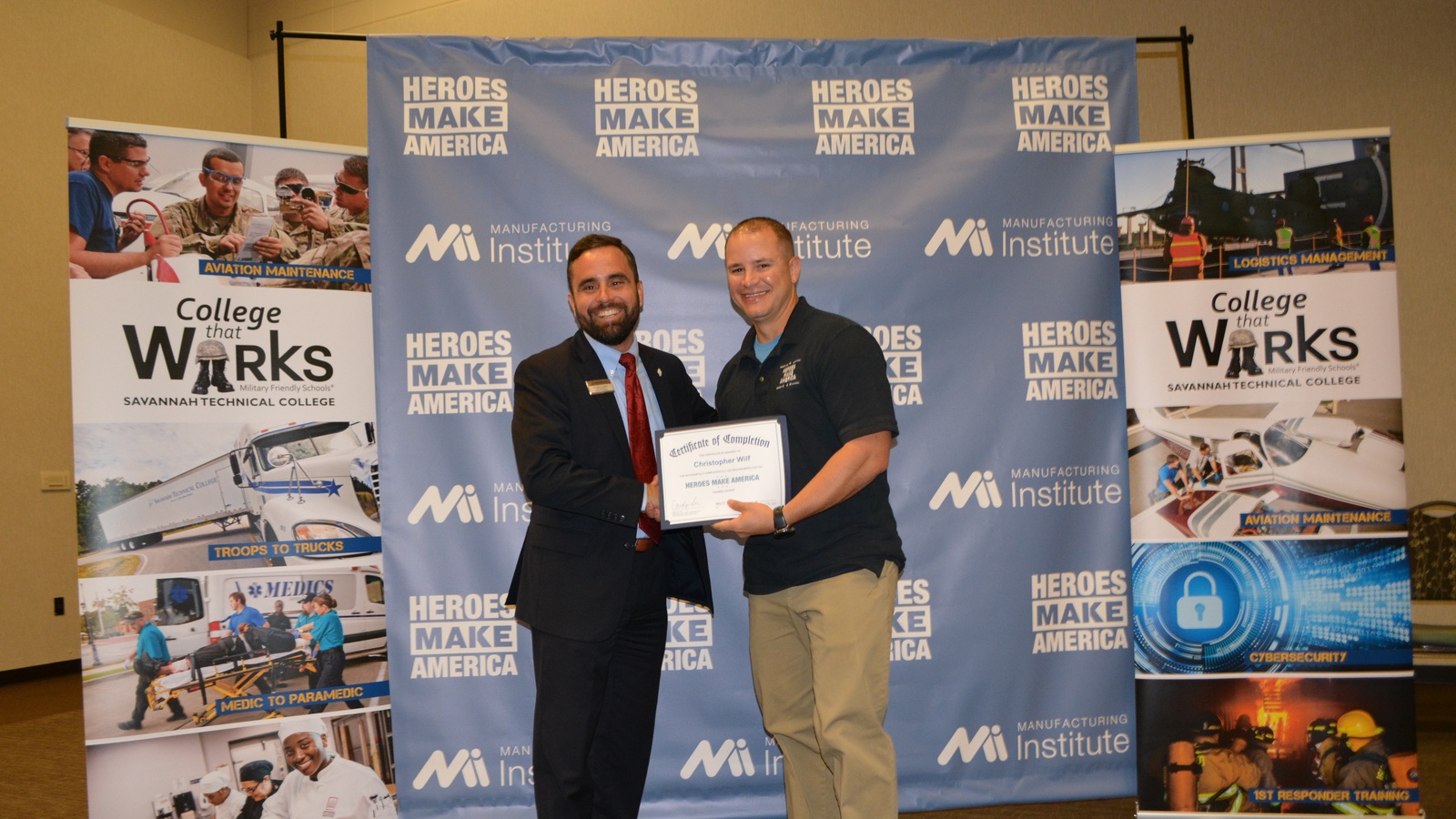Talking Cybersecurity with NAM COO Todd Boppell

What should manufacturers know about cybersecurity threats? NAM COO Todd Boppell recently appeared on Mandiant’s “Defender’s Advantage Podcast” to explain how cyber criminals are targeting manufacturers today and what companies can do to protect themselves. Here’s some of his advice.
The threat today: While cyberthreats are nothing new, in recent years there has been a sea change, Boppell said.
- “I think what’s really changed in the past five years, especially—it probably started in the past 10, but it’s massively accelerated—is that cybercrime as a business model is on the rise,” he said.
- “A lot of the bad guys, whether their motivations are political or purely economic, have realized that ransomware and other forms of pure disruption are sometimes just as helpful or just as lucrative as stealing any sort of intellectual property.”
Manufacturing as a target: Manufacturers get victimized by ransomware attacks “because manufacturing is one of the least tolerant industries of any sort of downtime,” Boppell continued.
- “Over the past five years, manufacturing was always in the top three [sectors targeted by cyber criminals], typically with medical and financial services … but really over the past 18 to 24 months, all the data I have seen says that manufacturing has jumped to number one and has stayed there.”
What small businesses need to know: Small businesses may believe that they are beneath notice for cyber criminals, but that’s not the case, said Boppell.
- Once they come to terms with that depressing reality, small companies should take a look at their staff and
 operations, he said. “Do they have the talent on staff to understand what they should do, what their risks are, which systems they currently have that need to be addressed? Do they understand all the acronyms at play? Do they understand the different threat vectors?”
operations, he said. “Do they have the talent on staff to understand what they should do, what their risks are, which systems they currently have that need to be addressed? Do they understand all the acronyms at play? Do they understand the different threat vectors?”
- And last, once the company generally knows what it’s doing and perhaps has some IT support, it should consider its budget, and how it can “get the most bang for its buck.”
What large businesses need to know: “Larger companies want to be helpful, and they want to help secure their supply chain partners, because it is absolutely in their best interests. … However, they are unbelievably busy just protecting their own boundaries and just worrying about all the attacks they’re facing,” Boppell said.
- “And of course, it’s always a little bit frustrating for smaller companies to have a larger company try to tell them what to do … so you have to really manage those relationships and figure out the right way to go in and help.”
The most important thing: “The number-one thing I’m trying to get through, and the number-one myth I want to dispel, is that a lot of small manufacturers believe that … they have no IP to protect,” said Boppell. “Maybe they make screws and fasteners, or maybe they make mattresses or whatever. … They feel like cyber is not a big deal for them.”
- “What we’ve seen with ransomware is that’s absolutely not true. Their ransomware risk is just as high as anyone else’s because they can’t tolerate downtime. And if they haven’t taken the steps to secure their networks and their equipment, then they’re going to be even more prone to falling victim to ransomware.”
Listen to the whole thing: You can find the entire interview with Boppell here.
Protect yourself: Interested in safeguarding your company? NAM Cyber Cover was designed specifically to give manufacturers and their supply chains enhanced risk mitigation and protection. Find out more here, and check out this webinar on the state of cybersecurity for manufacturers.
An Army Vet Transfers His Skills to Manufacturing

For Christopher Wilf, joining the armed services is a family tradition.
“When I was growing up, my dad was in the military, his dad was in the military, and my mom’s side of the family had people in the military,” said Wilf. “When I was 16 and trying to plan out my future, my high school had a recruiting station with all four branches. I went in asking for information and went from there.”
Wilf had a four-year plan: to join the military, gain some skills and earn some money. But as he prepares to exit his role as a warrant officer in the U.S. Army more than 21 years later, it’s clear that the experience was a better and more long-lasting fit than he expected.
The next step: After two decades working in military aviation, Wilf wanted to try his hand at something else—and when he was introduced to the MI’s Heroes MAKE America program at Fort Stewart, outside Savannah, Georgia, he saw an opportunity for a new career.
- “Heroes gives you a whole range of opportunities, whether it’s within your existing specialty or not,” said Wilf. “If you’re looking for something new, they’ll provide you some references for that new area.”
- “We’re in Savannah, and logistics is huge here—lots of Fortune 500 companies that need logistics support. I understood logistics, but had no background in it, so the Heroes program I chose provided me with some of that training.”
The program: The MI designed Heroes MAKE America as an integrated certification and training program that helps prepare transitioning service members, veterans, National Guard members, reservists and military spouses for careers in the manufacturing and supply chain industries. It offers in-person and remote training options, as well as career guidance and placement support.
The results: Through the Heroes program, Wilf is working as a warehouse distribution manager at the Target distribution center in Midway, Georgia—and he credits Heroes with offering him the training to succeed.
- “As a guy coming in with no formal logistics knowledge, it gave me everything I needed,” said Wilf. “I’m currently working in the logistics field, and now I have some framework for how logistics works. When a concept comes up at work, I have a frame of reference—I can say, tell me about the specifics of this job, but I understand the general theme.”
Good advice: “Go into Heroes seriously, with a mindset of ‘I am doing this for myself and my career, to better myself and gain knowledge that makes me marketable in the civilian world,’” said Wilf.
- “For me, that was the most beneficial aspect of the course—that I became immediately marketable, even though it was only a two-month program. Employers know that I have some knowledge, and I’ve proven that I’m someone who can lead.”
The transition: It’s clear from Wilf’s experience that the skills he gained in the military make him a strong fit for manufacturing—and that the industry can provide him with a long-term career.
- “In just two months, I’ve already seen how my skills transfer,” said Wilf. “I’ve gone through a lot of interviews, and those characteristics of a military person—to be reliable, to be safety-conscious and to be a leader—that’s what people are looking for.”
- “Picking Heroes MAKE America provided me with the ability to stay on an upward trend and find a career, not just a job.”
A pitch for manufacturing: “If you’re looking for a field where you can get a job, with potential for upward growth, then manufacturing is it,” said Wilf. “From being at the warehouse level to working in management at headquarters, that potential for growth is real.”
NAM Files Lawsuit Against SEC Over Proxy Rule Rescission

The U.S. Securities and Exchange Commission has rescinded critical components of a landmark 2020 rule regulating so-called “proxy advisory firms”—and the NAM is fighting back in court.
The long road here: In 2020, after years of NAM advocacy, the SEC finalized a major rule designed to combat proxy firms’ errors and conflicts of interest.
- Proxy firms influence publicly traded companies by recommending how institutional asset managers should vote in corporate proxy contests, often without any accountability.
- The 2020 rule required proxy firms to engage with public companies and their investors, and it subjected the firms to the SEC’s anti-fraud standards.
The about-face: Beginning last year, however, the SEC’s new leadership has worked to undermine the rule, including by refusing to enforce it—an unlawful decision the NAM opposed in court. Last week, the SEC officially rescinded many of the rule’s critical reforms.
The response: The NAM has filed a lawsuit against the SEC to preserve the 2020 rule. Our complaint argues that the SEC’s actions are “arbitrary and capricious”—and that the 2022 rescission should be overturned.
The issue: Federal agencies are required to articulate a reasoned explanation for making a new policy decision—especially when that decision is based on the same facts but reaches a different outcome than a recent rule.
- In this case, the SEC finalized a compromise rule in 2020 based on a decade of bipartisan research, analysis and discussion—and no new evidence has emerged since 2020 given that the SEC prevented the rule from taking effect. So, the agency’s about-face “epitomizes ‘arbitrary and capricious’ rulemaking.”
What we’re saying: “Manufacturers depend on federal agencies to provide reliable rules of the road, and the SEC’s arbitrary actions to rescind this commonsense regulation clearly violate its obligations under the Administrative Procedure Act,” said NAM Chief Legal Officer Linda Kelly. “The NAM Legal Center is filing suit to preserve the 2020 rule in full and protect manufacturers from proxy advisory firms’ outsized influence.”